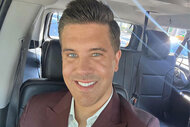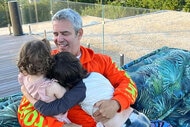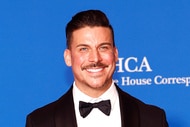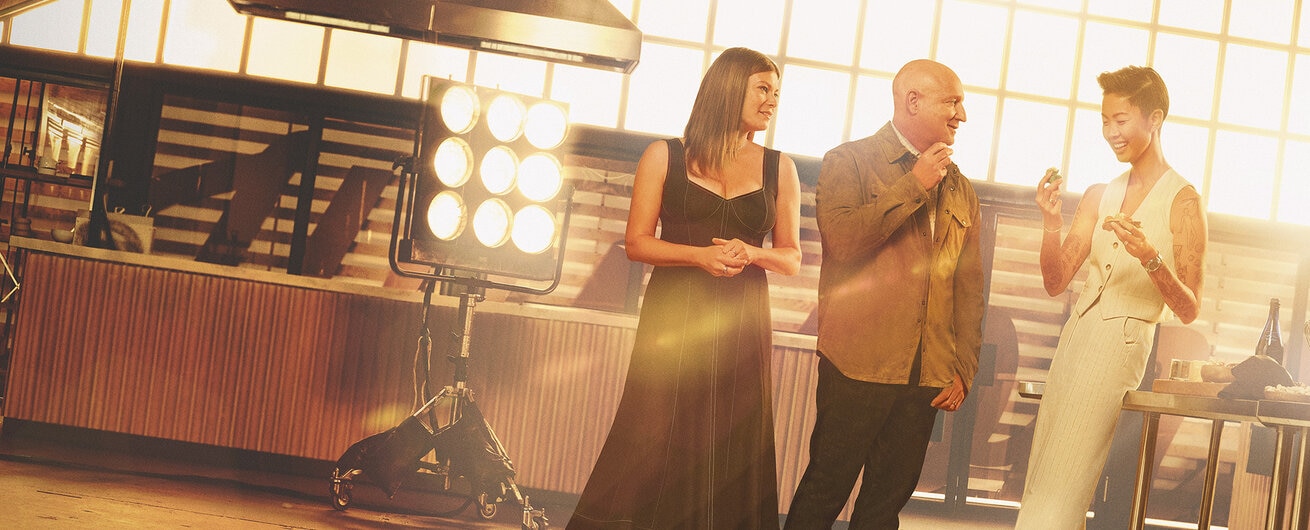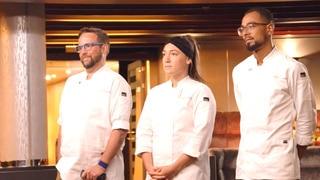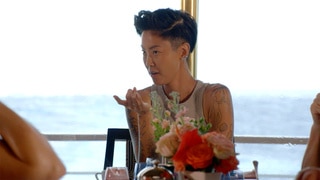
Create a free profile to get unlimited access to exclusive videos, sweepstakes, and more!
Michael Voltaggio on Why Chefs Struggle with Addiction: "We're Always Looking for Some Form of Intensity"
The winner of Bravo's Top Chef Season 6 opens up about his own journey to quit smoking.

With the rise of the celebrity chef over the past few decades, the world's most famous culinary personalities have been compared to rock stars, thanks to their antics inside and outside of the kitchen, from partying to arms filled with ink. But Michael Voltaggio has a problem with that.
The winner of Season 6 of Bravo's Top Chef, who stood out for his tattoos and bad boy image that season, has broken away from the vices of restaurant culture after he decided to quit smoking with the help of Nicorette about a year-and-a-half ago. "I wish somebody told me 10 or 15 years ago to not go out so much after work, to spend more time doing things other than partying and doing the sort of stereotypical thing that a chef did," Voltaggio said during a recent interview with The Feast. "People like to say, 'Chefs are the new rock stars.' That's all fine and good, but rock stars don't have to work 14 or 15 hours a day in a hot kitchen cooking for people and stuff like that. Rock stars work very hard, and I'm not taking away from what they do for a living, but we have a physically demanding and emotionally demanding job, and anything that takes away from that, you're only compromising: A, your health, and B, your future."
Voltaggio said he really started to pick up the habit when he started working in restaurants. "My brother [fellow celebrity chef Bryan Voltaggio] and my friends were also the people I was cooking with in my first kitchens, so everyone, right before service, would go outside and smoke. And everyone, right after service, would go outside and smoke," he recalled.
Of course, addiction of all sorts is something that many chefs have struggled with. Famous culinary personalities like Anthony Bourdain and Andrew Zimmern have been open about their own battles with addiction in the past. "We're always looking for some form of intensity," Voltaggio explained to The Feast. "There's this need to apply this energy to something, and I think chefs, all chefs, have this innate ability to have more energy than anyone else."
That is why more and more chefs are getting involved in "intense activities outside of the kitchen," such as martial arts and charity work, to combat addiction, according to Voltaggio, who is sharing his quitting story on Nicorette and NicoDerm CQ's new platform, stories.quit.com. "Imagine if you took that energy and applied it to more productivity or something different than just cooking. Imagine all the different things you could learn. As life goes by, do you want to remember that time or those times that you spent four or five or six hours in a bar after work, or what else did you accomplish?" he said. "I'm starting to realize that I have different interests outside of restaurants and cooking, and there's a lot of different things that I want to do, but I can't do that if I'm going out after work and partying and socializing and doing all the things that are associated with that."
For Voltaggio, it was one of those outlets, a No Kid Hungry's Chefs Cycle fundraising event, that inspired him to stop smoking in the first place. "That and smoking didn't make any sense together whatsoever. And so everything that I do, my personality, I'm very intense, and I want to do it all the way. Like, I want to go all the way in everything I do. So for me, it was about not just riding for charity, but riding really fast and being sort of competitive. So cigarettes were sort of getting in the way," he shared. "But more importantly, the lifestyle choices that were associated with smoking, i.e. going out after work or getting up in the morning and going out on my deck and drinking coffee and smoking and things like that, a lot of it was preventing me from getting to my goals, and so I needed to make more of a lifestyle change and not just quit a habit but change myself."
When it comes to ending an addiction — and quitting forever — Voltaggio said that his best advice would be to focus on something that's more positive. "Find other ways to distract yourself. I think Nicorette was just an example of something. It wasn't the means to an end; it was a distraction, and it inspired me to find other distractions to take my mind off of wanting to do that," Voltaggio said. "So any habit that you have, I think once you're an addict or once you're addicted or you have an addictive personality, you're always going to be addicted to something, so find something positive to be addicted to."
